Anna Kinberg Batra speaks in San Francisco
The leader of Sweden's Moderate Party spoke to a packed audience during an event at the end of May, discussing the topic of 'New challenges for political leadership: Populism and extremism in the U.S. and Europe.'
-
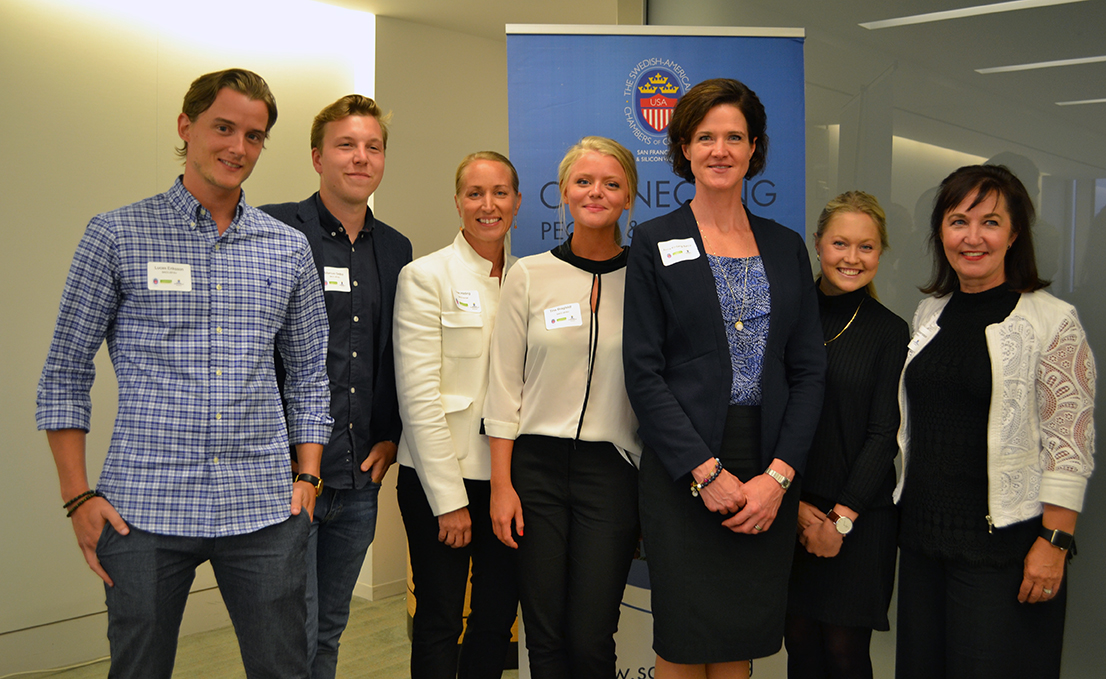
-
-
Anna Kinberg Batra toured the Bay Area. She saw Vinnova, visited academic researchers at Stanford University, Scandinavian entrepreneurs at Nordic Innovation House, and former Secretary of State Condolzza Rice, a Fellow at the Hoover Institute. Her talk was hosted by Lars Johansson at K&L Gates San Francisco office and sponsored by the Swedish Consulate General, Vinnova and the Swedish American Chamber of Commerce-San Francisco and the Silicon Valley.
Batra began her political career as a national parliamentarian in 2000. She then became an entrepreneur but returned to national politics in 2007, as chairman of the EU Committee. By 2010 she was a leader in her minority party. Since then she became the chair for the Budget Committee and since the last election, she has become the leader of the Moderate Party, the leader of the opposition in Swedish Parliament.
Batra thanked everyone for a warm welcome in the heart of high tech innovation, in part because she is keenly interested in entrepreneurism at home, since Stockholm is second to Silicon Valley in “unicorns” (private companies valued at $1 billion or more) per capita.
Like other countries, Sweden is becoming polarized, Batra said. But Swedes are proud of their their democracy, culture and their cohesion. A factor in Sweden’s success is its rapid rebound from the 2008 recession; now jobs and the labor market are both growing. -
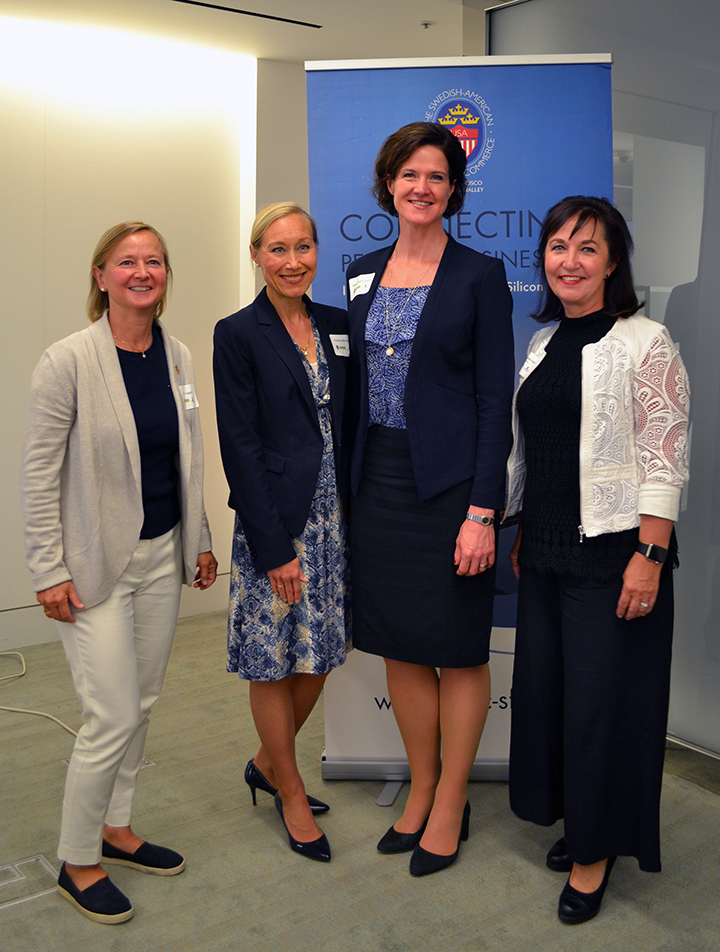
-
-
Three challenges
Batra, however, cited three challenges Sweden faces as it maintains this world-class productivity and economy:
1) Integration. In 2015, Sweden accepted 160,000 refugees, the largest sanctuary per capita. Half the refugees lack a high school education. It takes almost a decade for refugees to assimilate, become educated and get a job, and become taxpayers who contribute to the social benefits for all.
The biggest problem here is social exclusion, confining them to ghettos. The adults do not work and there is often a dual labor market with unequal pay and opportunities. If society can speed up integration, these people would become productive Swedes much quicker.
2) Jobs. Sweden must create many more new jobs. Today Sweden is very strong, but to keep up with world competition, Sweden must create another half million jobs by 2025. And the whole country must adapt to digitization.
In order for Sweden to stay on top of the world’s economy, Swedes must climb higher up the “value chain” — i.e., they must more quickly produce and adopt future technologies. This transition is accelerating throughout the world and the challenge will come from non-traditional competitors. China, India and Africa will also try to surmount this economy. Although these countries have larger, poorer and poorly paid populations with limited education (though some have superior educations), they are leaders in manufacturing technologies.
Although Sweden promotes trade with the European Union, Sweden will face increasing difficulties in trade. There are worries about the U.S. retreating from large established trading alliances to unpredictable bilateral trading partnerships.
3) Security. To counteract terrorism and mass hysteria, Swedes —like everyone facing security concerns — must cultivate resilience and collaborative resistance. Despite attacks, all democratic people must maintain their open societies.
In Sweden a third of all women feel insecure; Batra cited the police as the first line of defense, if they are informed. Further, as Russia continues to threaten the nation in the Baltic, Sweden emphasizes cooperating with all NATO countries for common defense. -
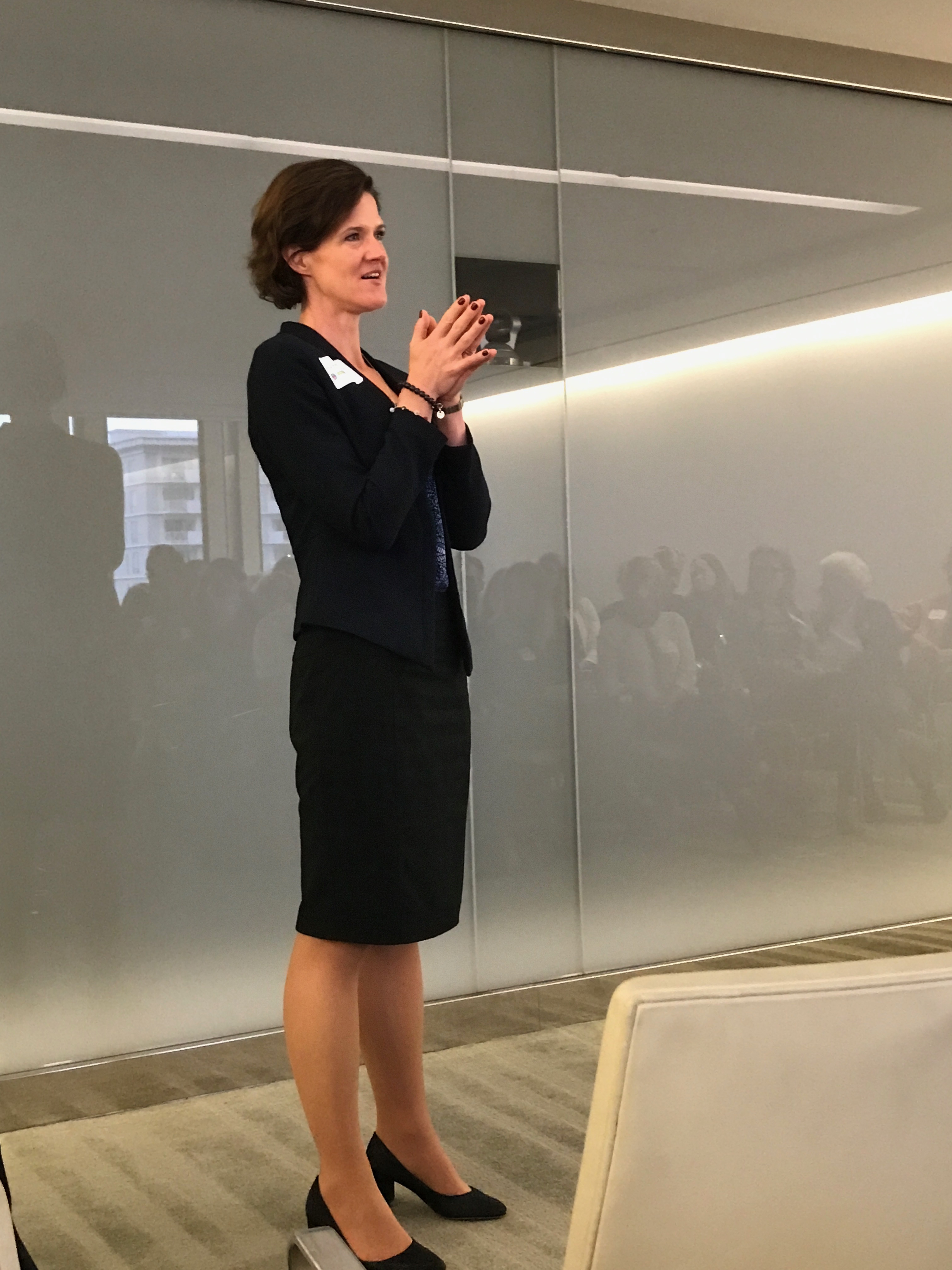 Anna Kinberg Batra, leader of the Moderates and of the opposition in Sweden’s Parliament. Photo Ted Olsson
Anna Kinberg Batra, leader of the Moderates and of the opposition in Sweden’s Parliament. Photo Ted Olsson -
Facing the future
Today in Sweden there are calls for reforms. However, suggestions must be solutions for the common good. When some states try to influence other states’ internal affairs, it becomes increasingly difficult for the government and its officials to get their message to their countrymen.
Some people turn inward or backward, Batra said, but the past cannot be recovered nor imposed: One must live in the present with understanding. The answers of the past are not sufficient for tomorrow. Populism taps into people’s fears and worries, but hysteria provides no solutions.
Batra proposed to confront the realities of the present so as to determine what Sweden can do and become. Her challenge, therefore, is one of integration and improving greatly the number of simple jobs and small businesses that can give immigrants meaningful employment while they assimilate and gain the education necessary for better jobs. She is intent on creating the appropriate business climate.
Sweden is wary of U.S. tax reform. Sweden must be able to offer a business climate that is superior to that of the U.S. in order to gain a competitive position in international trade. She believes the Swedish tax system must provide incentives for all to work. It must be more profitable for each Swede to work than to receive benefits. Only in this way will the country as a whole be competitive and maintain its enviable rank among the best nations to live in.
Now Batra focuses on creating a new generation of technical professionals. She needs to increase the emphasis on STEM (science, technology, engineering and math) disciplines very early and continually in Swedish education. Sweden will be challenged to educate all of its students to its former high levels. -
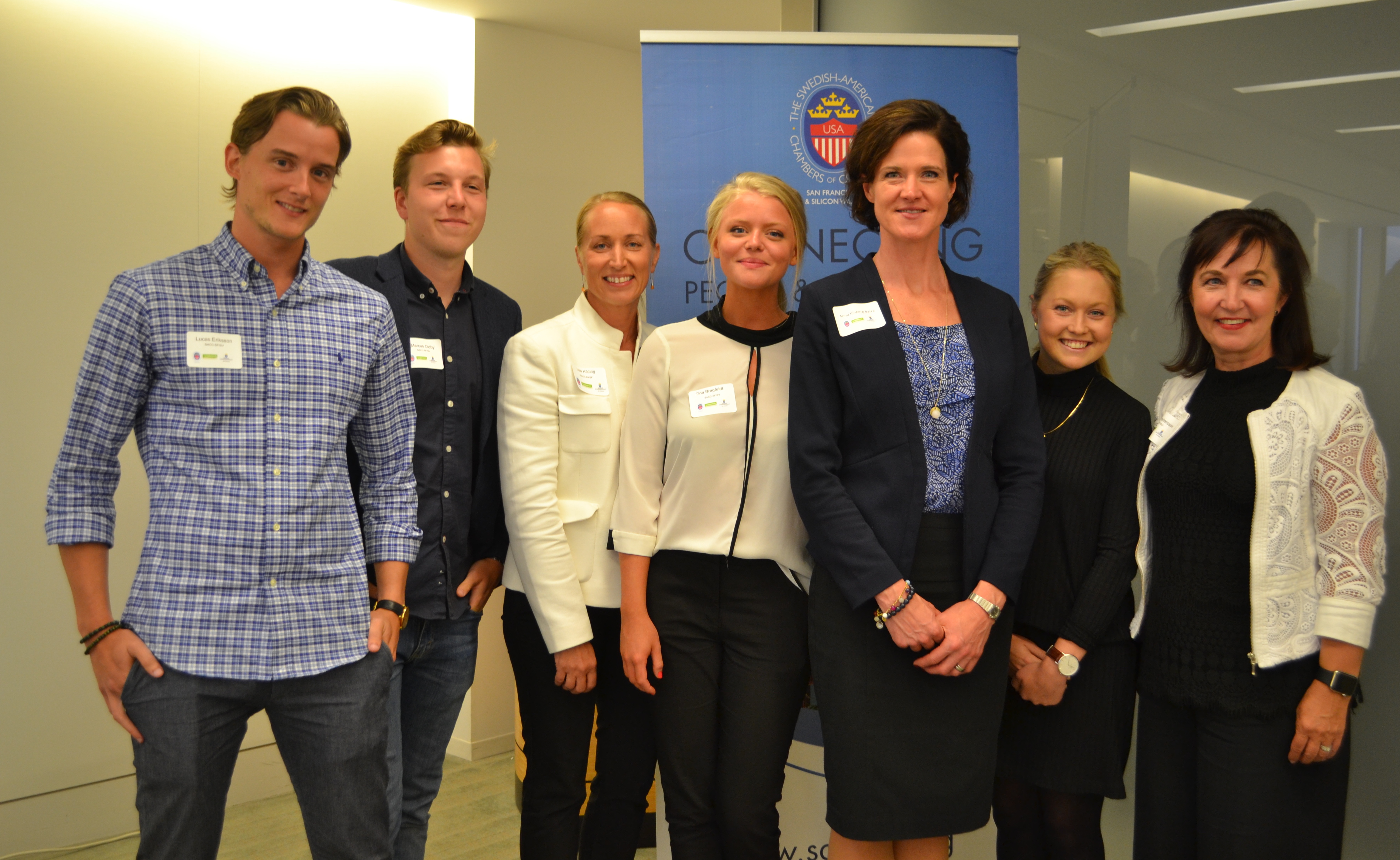 SACC-SF/SV interns enjoy visiting Swedish dignitaries and regional business celebrities: Lucas Eriksson, Marcus Oldby, Lisa Hilding, Tina Bragfeldt, Anna Kinberg Batra, Sofie Birkfeldt, Helena Kristersson.
SACC-SF/SV interns enjoy visiting Swedish dignitaries and regional business celebrities: Lucas Eriksson, Marcus Oldby, Lisa Hilding, Tina Bragfeldt, Anna Kinberg Batra, Sofie Birkfeldt, Helena Kristersson. -
At stake in the next election
Batra said it is unfortunate that Sweden ranks organizing or financing terrorists as no different than theft in terms of criminal punishment. She believes this must be substantially differentiated and the punishment for terrorists must be as severe as their crimes in terms of death, injury and the scope of people affected.
She agrees Sweden’s membership in NATO is extremely important: An offense against one European democratic member must be a threat to all with a common and coordinated defense against any aggressor. She reported that Sweden is substantially increasing its own defenses and that they must plan a common security with their neighbors. It is the role of government and officials to keep the country safe and secure, both internally and externally. -
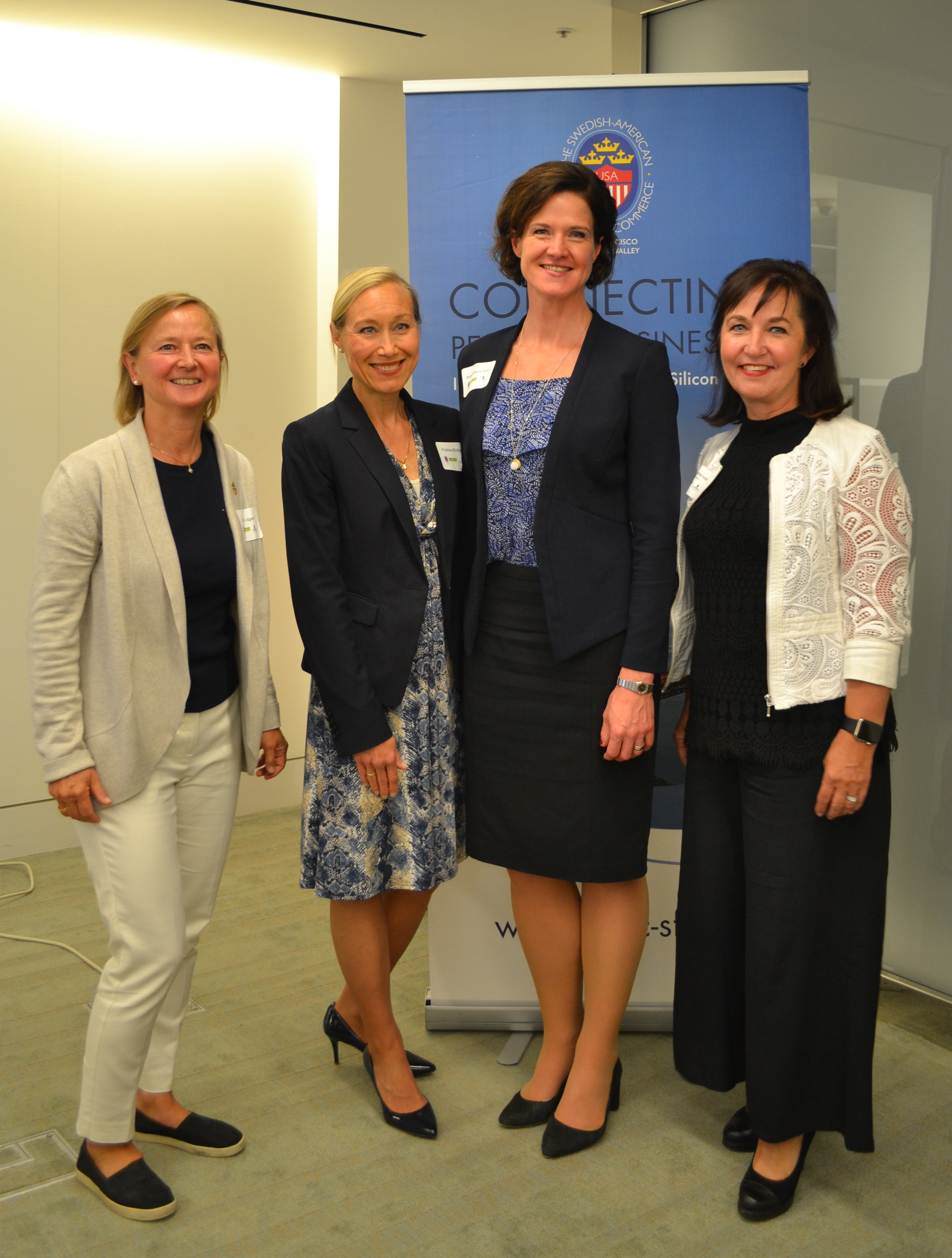 Hosts & guest: Ann Lidgard (Vinnova), Kristina Bünger (Swedish Consulate), Anna Kinberg Batra, Helena Kristersson.
Hosts & guest: Ann Lidgard (Vinnova), Kristina Bünger (Swedish Consulate), Anna Kinberg Batra, Helena Kristersson. -
Q & A
Having concluded her talk, Anna Kinberg Batra answered questions from the audience.
1) Sweden’s relationship with Israel is fair to both sides. Sweden believes in a strong and stable Israel as the only democracy in the region. However, according to the Oslo Accords agreed on by both sides, Sweden supports a peaceful two-state solution, while recognizing that Israel is confronted by terrorists from north and south. -
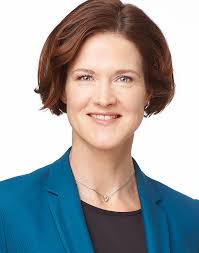 Anna Kinberg Batra, Leader of Sweden’s Moderate Party. Photo courtesy of Anna Kinberg Batra
Anna Kinberg Batra, Leader of Sweden’s Moderate Party. Photo courtesy of Anna Kinberg Batra -
2) Sweden scrutinizes all immigrants. The problem is everyone who is not accepted is told to leave — without immediate enforcement, an estimated 12,000 illegal immigrants remain in Sweden. The obvious solution is to thoroughly identify and catalogue these people who are rejected and the government itself must promptly deport them. But this is costly; police need the resources to comply with this new requirement.
From those allowed to remain, Sweden should accept their pledge to adopt the Swedish culture (even as Sweden respects their religion and culture), and the country should help them get a job appropriate to their skills, while all of them learn the Swedish language. It should encourage them to transition to a new better job as soon as possible.
This is easier said than done, but most people granted asylum want to get a job as soon as possible and contribute. Batra says with simpler tasks and government guidance, with Swedish language and culture classes, immigrants might be assigned simpler jobs, such as caring for the elderly, health care, and working at the lower end of the labor market. -
3) Regarding a complaint that Muslims are changing the norms of Swedish society, Batra suggested that it is very important to listen to a wide variety of different opinions in order to craft a solution. The more complex the problem, the less it can be answered by simplistic solutions.
For those immigrants who reject adopting the Swedish culture by not allowing their kids to attend Swedish schools, she suggested the police should step in. It is always important to remember that Sweden defends the freedom of and from religion. Prohibiting one’s child from attending Swedish schools is denying them the future of participating in the open society that the parents have freely chosen. -
4) When asked for Sweden and Europe’s opinion about President Trump, the Swedish legislator was diplomatic. The most difficult aspect is that he is unpredictable, nor does he seem to respect the history and rationale of past alliances. Europeans do respect him as the duly elected President of the United States, though they may reserve judgment on whether he is the leader of the free world. Where foreign affairs are concerned, the hope is he might be persuaded by some excellent and respected senior cabinet members; Europe as a whole hopes to enjoy the traditional benefits of free and fair trade with the United States. It is the interest of both countries to maintain good Swedish-U.S. relations.
-
5) While discussing the sharing economy, Batra said the labor market is changing internationally to stimulate micro-businesses. Sweden must adapt to this reality and current practices. The government must make it easy for such companies to participate in the country. People are discovering new ways of finding jobs. In some sense this is akin to her solution of simple jobs, of people using their native talents and current skills to make jobs for themselves, keeping the citizenry productive.
One such reform is creating private businesses that offer services to households, such as cleaning or caring services. Such jobs are especially important for new immigrants, because it applies the skills they have, while learning new ones and mastering Swedish in order to transition to better jobs. This helps meet Sweden’s quota of 150,000 new jobs, even at lower wages. -
6) Like all developed countries, Sweden lacks enough housing to meet its current population. Sharing solutions, such as sharing rooms or apartments, may need to be considered. Yet, to totally deregulate this market would only worsen the situation, so Batra's solution is to increase supply while considering new solutions.
-
Representing her constituents
Anna Kinberg Batra tries to listen to and represent her constituents while maintaining a serious and long-term perspective. Being enormously proud of Sweden and its democracy, she believes the basic national character must be kept in mind even when the times call for difficult reforms to adjust to contemporary realities.
To do this, she practices a form of simple and practical politics in Sweden. She has established regular Facebook chats with her constituents, she receives a wide variety of questions, listens to her supporters and learns from them. She enjoys this form of direct democracy by using current technology and pursues her political beliefs with courage, strength and persistence, maintaining the long-term perspective. In this way she tries to earn the confidence and trust of her public. She will continue to focus on that. -
At the conclusion of her talk, everyone was invited to continue enjoying the refreshments, libations and convivial conversations. It was evident that Batra thoroughly enjoyed meeting everyone and hearing their concerns for Sweden. In her impeccable American English and her ease with everyone, she was both impressive and admired by her audience.
-
~By Ted Olsson, San Francisco
-
-
